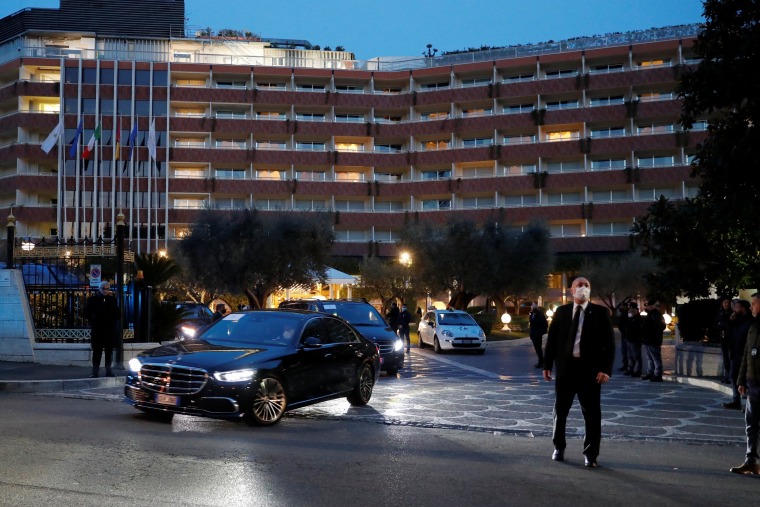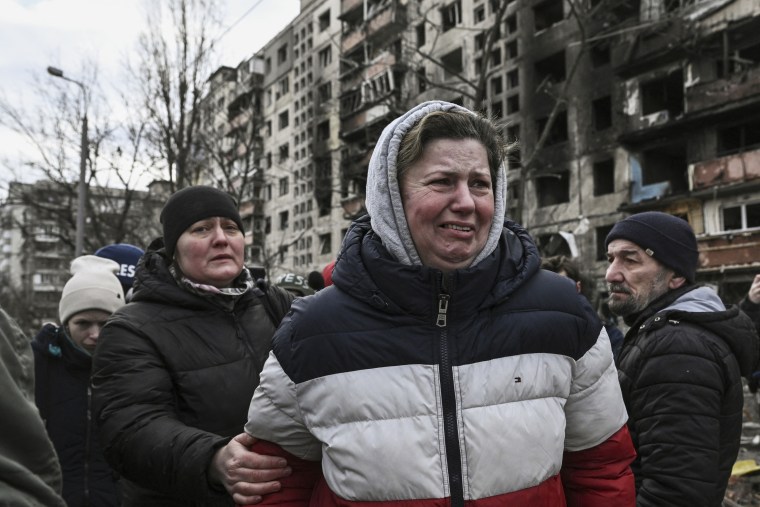U.S. national security adviser Jake Sullivan on Monday raised concerns about China’s alignment with Russia in a seven-hour meeting with Chinese diplomat Yang Jiechi as Washington warned of the isolation and penalties Beijing will face if it helps Moscow in its invasion of Ukraine.
After talks ended in Rome, the White House issued a short statement, saying Sullivan raised a “range of issues in U.S.-China relations, with substantial discussion of Russia’s war against Ukraine.”
“We do have deep concerns about China’s alignment with Russia at this time, and the national security adviser was direct about those concerns and the potential implications and consequences of certain actions,” a senior administration official told reporters.
Sullivan described to Yang “the unity of the United States and its allies and partners ... in bringing the cost on Russia for its actions,” this official added.
The official described the meeting as “intense,” reflecting “the gravity of the moment,” although it had long been planned, was not timed to events in Ukraine and covered other issues including North Korea, Taiwan and tense bilateral relations.
The official said the exchanges had been “candid” but led to no specific outcomes.
Before the talks, U.S. officials had said Sullivan planned to warn of the isolation China could face globally if it supported Russia.

Officials of the United States and other countries have sought to emphasize in recent weeks that siding with Russia could carry consequences for trade flows and development of new technologies and expose China to secondary sanctions.
“We have communicated very clearly to Beijing that we will not stand by ... (and) we will not allow any country to compensate Russia for its losses,” State Department spokesman Ned Price told a regular briefing in Washington.
It was Sullivan’s first-known meeting with Yang since closed-door sessions in Zurich in October that sought to calm tensions after an acrimonious public exchange between the two in Alaska a year ago.
Xinhua, China’s state-run news agency, cited Yang as saying that Beijing was committed to promoting negotiations to resolve the Ukraine conflict.
Download the NBC News app for breaking news and politics
“China firmly opposes any words and deeds that spread false information and distort and smear China’s position,” Yang said, in an apparent oblique reference to Washington’s claims about support for Russia. China and the United States should strengthen dialogue, properly manage differences, and avoid conflict and confrontation, he said.
Ryan Hass of the Brookings Institution said Chinese support for Russia “would considerably narrow its path for preserving non-hostile relations with the United States and the West” and not likely alter the trajectory of the conflict.
China is the world’s largest exporter, the European Union’s largest trading partner and the top foreign supplier of goods to the United States. Any pressure on Chinese trade could have economic effects on the United States and its allies.
U.S. officials told NBC News on Sunday that Russia had asked China for military equipment after its invasion. Russia denied asking China for military assistance and said it has sufficient military clout to fulfill all of its aims in Ukraine.
Sino-U.S. ties, already at their lowest point in decades, took a further plunge last month when leaders Xi Jinping of China and President Vladimir Putin of Russia announced an upgraded “no limits” strategic partnership just weeks before the Ukraine invasion.
China, a key trading partner of Russia, has refused to call Moscow’s actions an invasion, although it has expressed concern about the humanitarian situation and urged all parties to exercise restraint.
Russia itself calls its actions in Ukraine a “special military operation.”
The United States and its allies have imposed sweeping sanctions on Russia and banned its energy imports, while providing billions of dollars in military and humanitarian assistance to Ukraine.
